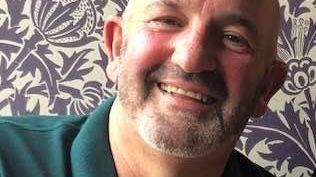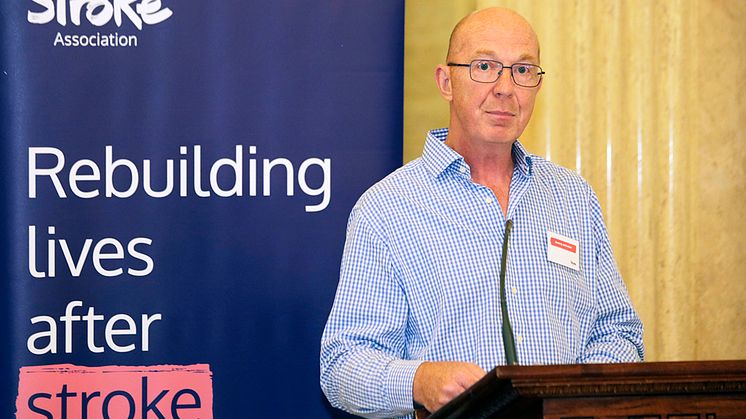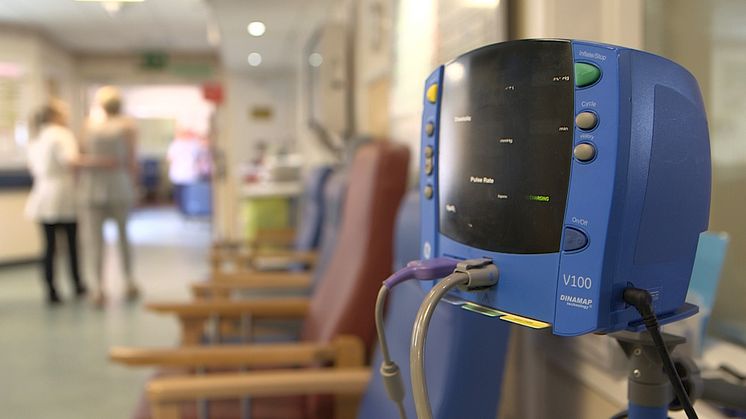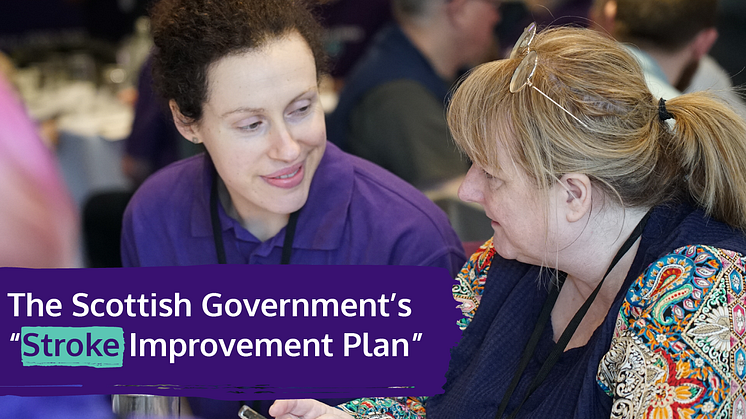Stroke Association response to DHSC's 'Major conditions strategy: case for change and our strategic framework'
It is good to see stroke being recognised as the major condition it is.
It is good to see stroke being recognised as the major condition it is.
It’s important that government and NHS leaders urgently address staffing issues in NHS and social care services which are key to relieving pressure across the system.
Former Grocer, Alex, from Edinburgh, had a massive stroke aged 52. At first, he was unable to sit up or walk, but after months in hospital with intense physiotherapy, he could walk, albeit with difficulty.
Thankfully, Alex received good support from hospital staff – particularly his physio, but Alex’s wife, Lorraine, was his rock, helping him to adjust to life after stroke. He describes a role

Stroke patients in Northern Ireland are being badly let down by continuing delays in creating centres of excellence for stroke care, says the Stroke Association.
One year on from the launch of the Department of Health’s long-awaited Reshaping Stroke Care Action Plan, there are still no firm plans for the much-needed transformation of stroke services and development of ‘hyperacute stroke uni

The Stroke Association welcomes the publication of the long-awaited NHS Workforce Plan.

The UK’s leading stroke charity is deeply concerned by the latest national stroke statistics which tell a distressing story of decline of the most basic levels of hospital stroke care in Scotland.
The Stroke Association highlights less than two thirds of all stroke patients in the country were admitted to a dedicated stroke unit on time last year, despite stroke being designated as a clinical p

John Watson, Associate Director Scotland said:
“We welcome the Scottish Government’s Stroke Improvement Plan (2023) which sets out the commitments Health Boards in Scotland must undertake to ensure equitable and timely access to diagnosis, treatment and care for people with suspected stroke. Stroke is a clinical priority in Scotland, and this ambitious plan reflects the importance of tackling t

A stroke survivor from Warminster is calling for more public understanding of the speech and language condition which affects him and more than 350,000 other people in the UK.
Mark Docksey, 38, says there are often times when people think he is “either daft or drunk” because they make assumptions about his speech.
He has aphasia, apraxia and dysphasia, as a result of a stroke in November 20

Sisters Samantha Williamson, and Clare Hogarth from Peebles, ran the Edinburgh Half Marathon on 28 May, to increase awareness of stroke and raise funds for the Stroke Association. Their father, Tommy, had a massive stroke last October rendering him unable to walk and talk. After three weeks Tommy could walk, but still struggles with communicating – a condition, also known as aphasia. Tommy was fit

The unplanned withdrawal of stroke services from Daisy Hill Hospital in Newry, Northern Ireland, is extremely worrying.
Alasdair O’Hara, the Stroke Association’s associate director for Northern Ireland, said: "It’s long been acknowledged that stroke services across Northern Ireland need transformed to improve outcomes for patients and create more sustainable, high-quality services.
"Yet, d
New research from the Stroke Association reveals a huge lack of public awareness and knowledge of aphasia - a language and communication disorder most commonly caused by stroke
New research from the Stroke Association reveals over half of the Welsh public (57%) have never heard of aphasia*, despite it affecting over 350,000 people in the UK1.
Aphasia is a language and communication disorder

Anything we can do to prevent the misery that stroke can cause is ultimately good news.